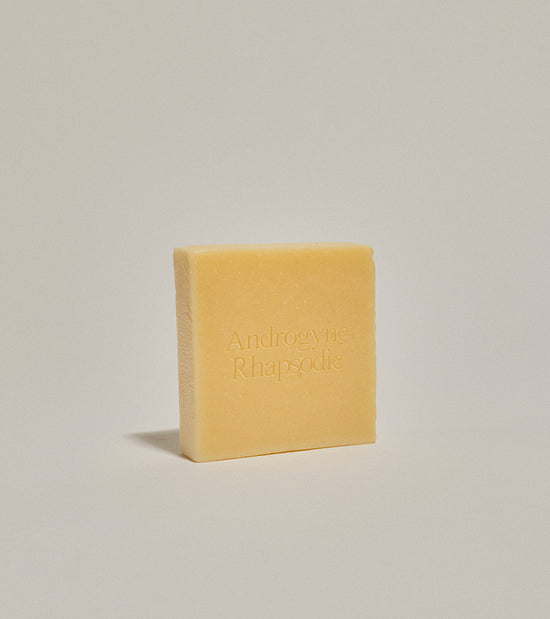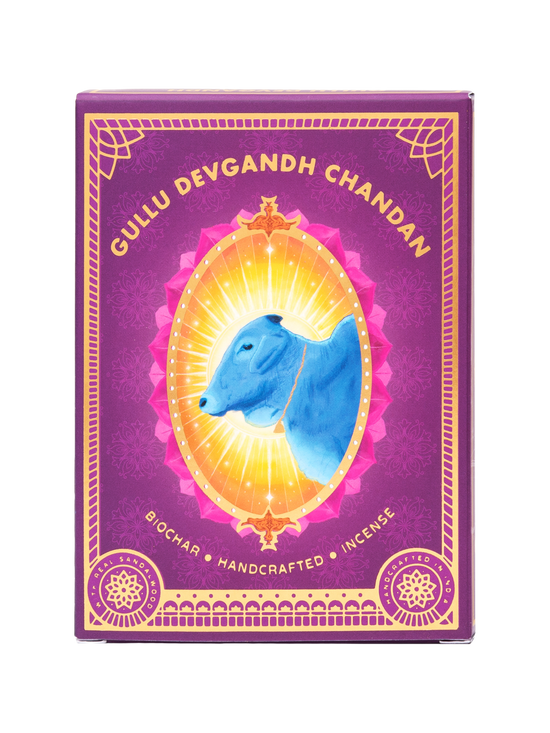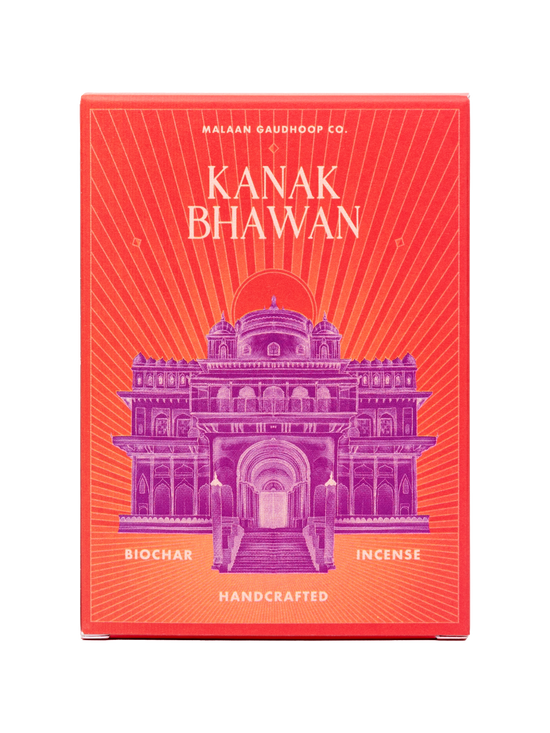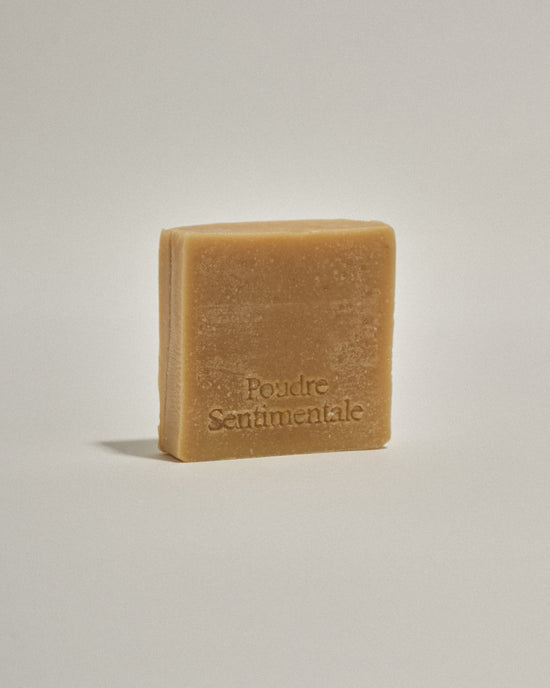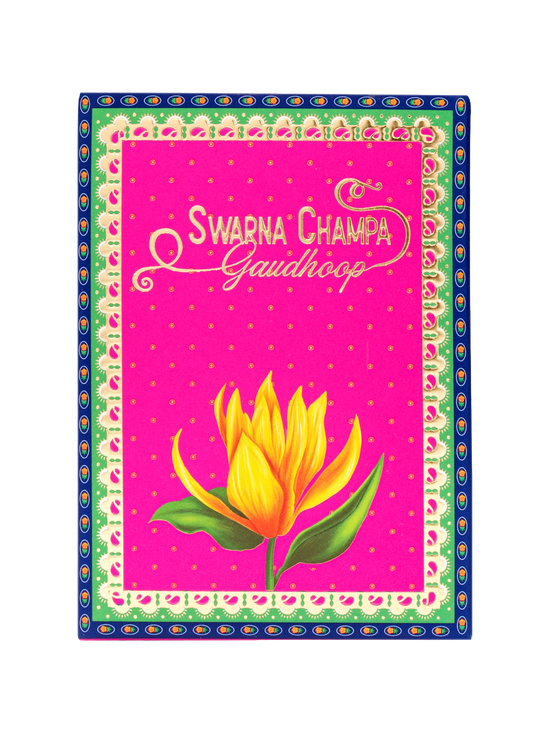Five years ago this April, my grandma (Nanny) died. The day after her funeral, I got in my car and started driving, not sure where I would land. I drove north out of Baltimore, and as I drove, I remembered a market I heard about that sold crafts, lavender and soaps. Something my Nanny would have loved. So I entered it into GPS and landed at Star Bright Farm, flustered and grieving.
At the market, there was a local perfumer and, knowing how smell and memory are linked, I had the thought of fixing my Nanny in my mind somehow by scent. I smelled vial after vial, and settled on what the seller called, ‘Sainted Rose,’ a palo santo/rose mixture that smelled nothing like my Nanny but still reminded me of her in its shimmering, delicate beauty. Plus, it had the word “saint” in its name and my Catholic Nanny loved her some saints. I rubbed the oil on my pulse points and breathed it in that day and the whole following week, willing it to remind me of a grandmother who I would never hug or smell again.
Here’s the thing about scent and memory: it is incredibly specific. Change one bond on a molecule and our noses can tell the difference. Our noses store smells immediately--the smell enters our brain, passes through the limbic system, our intuitive, “animal” brain, and lands in our long-term memory. Unlike the messages from our other senses which first get processed through the frontal lobe and its more, shall we call it, ‘rational’ assignation of value. Scientists speculate that our noses helped us survive by avoiding poison, finding edible foods, and searching out sickness and decay, in addition to sniffing out potential mates with different, complementary genes to our own.
What this means for me is that I couldn’t trick my brain into posthumously associating a smell with my Nanny. When I pull out that tiny glass vial of ‘Sainted Rose’ and twist off the lid, I remember myself at that market, how I struggled to focus my eyes on the sheaves of dried lavender and letterpressed notecards for sale. I remember obsessively moving my Nanny’s giant 70’s sunglasses around my house the week after she died, trying to find the right spot for them. It doesn’t recall her physical presence at all. That happens randomly, passing a stranger in the grocery store who’s slathered in the same cheap face cream, or the smell of cigarette smoke on polyester, or the steam from a pot of chicken soup made from her recipe.
Something shifted in me when my Nanny passed and it took me a while to figure it out. I knew it had something to do with buying that bit of oil. I even joked with the perfumer that day that it felt appropriate to buy something unnecessary to celebrate my Nanny as she was the queen of the unnecessary. A classic Nanny story: she loved African violets and one snowy winter’s day, saw pots of them for sale at the local grocers. She bought a pot and cradled it against her chest on the way home, protecting it from the Philadelphia snow and wind. She got home and placed it gently on her windowsill and reached up to wipe a stray snowflake off its petals. Only then did she realize the flowers she so carefully carried were plastic.
Fact: African violets, despite their looks and their name, are not actually violets, and do not have a smell, unlike the real violets that once dominated the perfume world during the time of Napoleon.
I tell that African violet story fondly, remembering Nanny’s love for beauty, her willingness to choose it over the practical (I’m sure the money for those violets was meant for some essential, like eggs or milk.) In some ways, this is the tragedy of Nanny’s life: she lived in hard times that necessitated hard choices, and sometimes she chose the beautiful or the non-essential over the practical and necessary. Her children loved her but also came to view her as weak, vain, childish. My mother and her sisters became tough women, the kind who make the difficult choices and choose the needful over the desired.
(And yet...my mother cannot see a beautiful piece of fabric for sale and turn away from it, even though it just gets stacked away in a closet, unused, almost hidden.)
Which brings me back to that shift in myself I was talking about, the one I knew happened but couldn’t quite describe. It has to do with enjoyment, I think, about not being embarrassed to love something frivolous, like a smell, or a violet, even when it turns out not really be a violet at all. It was hard for me to admit I loved something as unnecessary as perfume. That Sainted Rose oil I purchased turned out to be the beginning of a completely impractical hobby; a hobby I continually want to hide or diminish or slight.
But the harder choice, and a choice that makes me think of my Nanny as I do it, is to enjoy it. To fall in love, head over heels with a new fragrance. To spend part of my day everyday on something entirely frivolous. To affirm the frivolous as essential to me somehow. This means resisting both my upbringing that asks me to immediately turn a love into a practical career (love books? be an English teacher. Love scent? don’t know how to help you there) as well as the current ideal of self-actualization by turning something you love into an Instagram side-hustle.
It’s not wrong to build a career doing something you love. It’s not wrong to attempt to share a particular love with the world. But it also does not have to be the goal. Sometimes you can do something just for enjoyment. Sometimes you can have a hobby that exists for your own learning and pleasure. Sometimes you can smell each thing that passes your nose and love the singular, complex, indelible presence of its scent, that you will then forgot until days, months, maybe years later when you will smell it again, and there it is, still living inside you; like how the smell of Noxema, faint smoke, and Jean Naté body splash, brings my Nanny’s presence back to me when I least expect it, a moment of grace in the frozen food section or hanging my coat on a crowded rack.
Laura Bugbee Plaster is a writer, mother and scent lover from Baltimore, Maryland.
